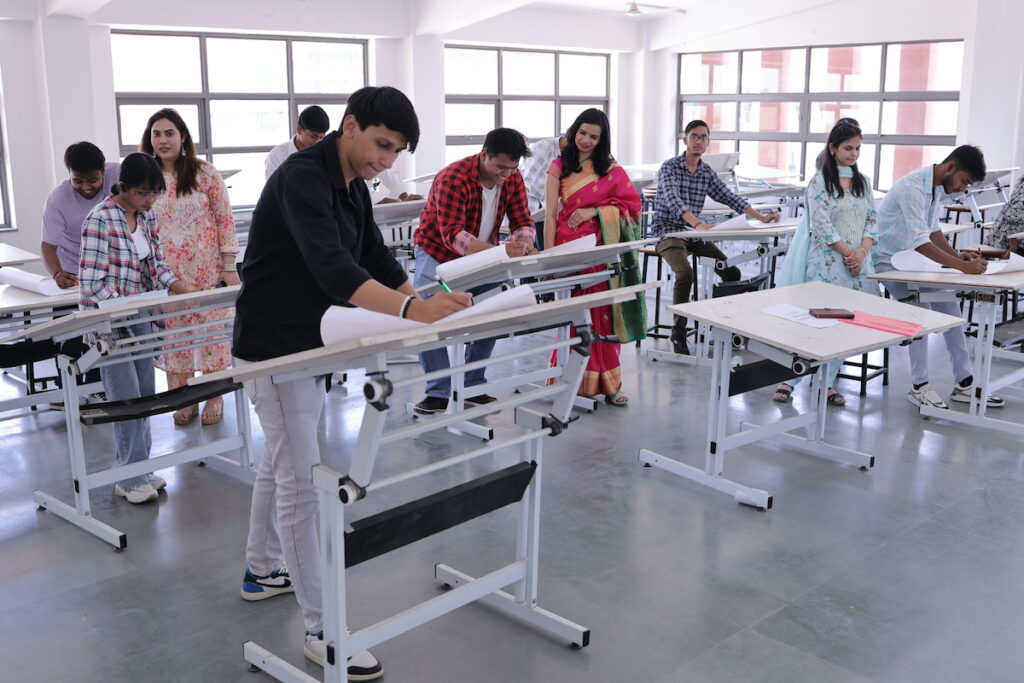D.Pharma Entrance Exam
The Diploma in Pharmacy, is a foundational course in pharmaceutical sciences designed for individuals aiming for a career in the pharmaceutical industry. D Pharma Entrance Exam is a key step for admission into this program.
It equips students with the essential knowledge and skills required to understand drug formulations, dispensing, and various aspects of pharmacy practice.
To gain admission into a reputed D. Pharma program, candidates often need to clear an entrance exam that assesses their aptitude and readiness for this specialized course.
This introduction provides an overview of the D. Pharma entrance exam, including its significance, structure, and preparation tips.
Significance of D. Pharma Entrance Test
The Diploma in Pharmacy entrance exam serves as a gateway for aspiring pharmacists to enter into the field of pharmacy. It is crucial because it helps institutions identify candidates with the necessary knowledge and skills to succeed in the pharmacy profession.
The D Pharma Entrance Exam ensures that only candidates with a solid foundation in science and a genuine interest in the pharmaceutical industry are selected for the program. With the growing healthcare sector, the demand for qualified pharmacists is rising, making this entrance exam a crucial step toward a successful career in the field.
Structure of the Exam
The D Pharma Entrance Exam typically features multiple-choice questions (MCQs) covering subjects like Physics, Chemistry, Biology, and Mathematics. These questions assess candidates’ understanding of fundamental concepts and their ability to apply this knowledge in practical scenarios.
The exam is generally divided into sections, with each section focusing on a specific subject area:
Physics: This section tests the candidates’ knowledge of fundamental concepts in physics, including mechanics, thermodynamics, optics, and electromagnetism. It assesses their ability to solve problems related to these topics.
Chemistry: Chemistry is a core component of the D. Pharma entrance exam. It includes questions on organic, inorganic, and physical chemistry, covering topics like chemical bonding, reactions, stoichiometry, and the periodic table.
Biology: This section evaluates the candidates’ understanding of biological concepts, including cell biology, genetics, human physiology, and plant biology. It is particularly important for candidates with a background in biology.
Mathematics: Although not as emphasized as the other sections, mathematics may be included to test the candidates’ quantitative aptitude and problem-solving abilities. Topics like algebra, trigonometry, and calculus are commonly covered.
Some of the most opted courses in India and St. Andrews college or different Engineering college or Management colleges are as follows:-
- Btech
- Btech CSE
- Btech ETCE
- MTech
- BCA
- BBA
- MBA
- MCA
- DPharma – St. Andrews College of Pharmacy
- BPharma – St. Andrews College of Pharmacy
- BArch – St. Andrews College of Architecture
D Pharma Course Details
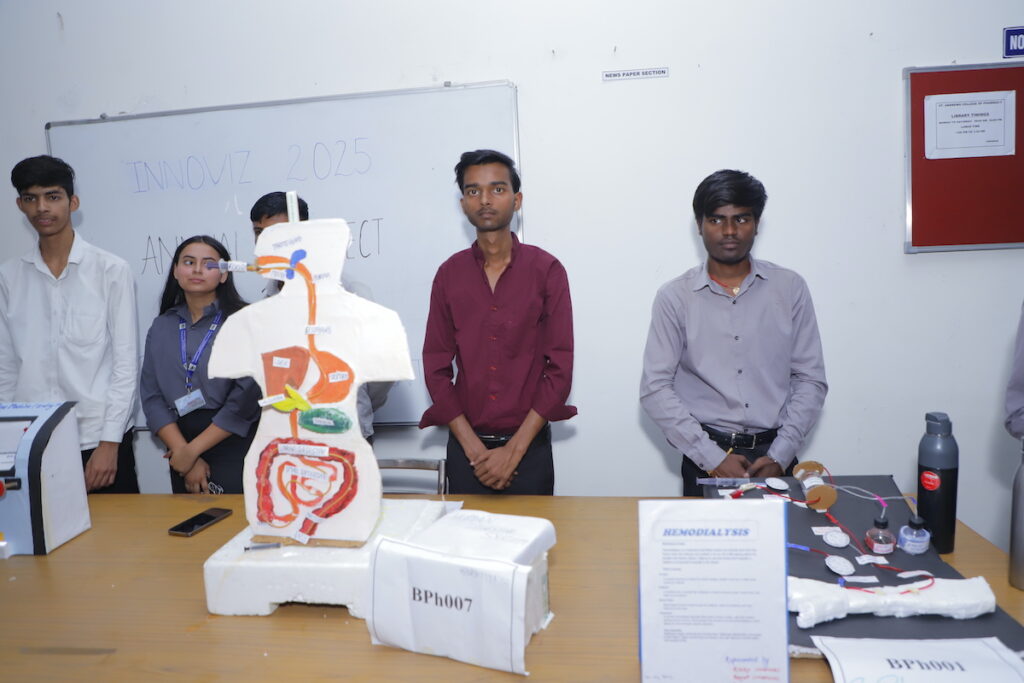
The Diploma in Pharmacy (D. Pharma) is a two-year undergraduate course designed for students aiming for a career in the pharmaceutical sector. This course equips students with essential knowledge and skills for roles in community pharmacies, hospital pharmacies, and the pharmaceutical industry. Clearing the D Pharma Entrance Exam is often a crucial step for admission into this program.
Course Duration
The Diploma in Pharmacy course is typically completed over two years, divided into four semesters. Each semester includes theoretical classes, practical lab sessions, and internal assessments. Some institutions also offer a mandatory internship or practical training period at the end of the course to provide hands-on experience in a real-world setting.
Eligibility Criteria
Educational Qualification: Applicants must have completed their 10+2 education from a recognized board, with Physics, Chemistry, and Biology/Mathematics as compulsory subjects.
Minimum Marks: Most institutions require a minimum aggregate score of 50% in the qualifying examination (45% for reserved categories).
Age Limit: Candidates should be at least 17 years old at the time of admission.
Core Subjects
The Diploma in Pharmacy curriculum is designed to cover a broad range of topics related to pharmacy. Key subjects include:
Pharmaceutics: This subject deals with the formulation, preparation, and dispensing of drugs. It covers dosage forms, drug delivery systems, and the technology used in pharmaceutical manufacturing.
Pharmaceutical Chemistry: Students learn about the chemical properties of drugs, the process of drug development, and the synthesis of medicinal compounds. This subject also covers analytical techniques used in drug testing.
Pharmacology: Pharmacology involves the study of the effects of drugs on biological systems. It covers drug actions, mechanisms of action, therapeutic uses, side effects, and interactions.
Pharmacognosy: This subject focuses on the study of medicinal plants and natural products. Students learn about the extraction, identification, and use of natural substances in medicine.
Hospital and Clinical Pharmacy: This subject covers the role of pharmacists in hospital settings, including drug dispensing, patient counseling, and management of drug therapy. It also includes the study of clinical trials and regulatory aspects of pharmaceuticals.
Biochemistry and Clinical Pathology: This subject deals with the biochemical processes in the human body and their relationship with diseases. It also covers laboratory techniques used in clinical pathology.
Human Anatomy and Physiology: This subject provides an understanding of the structure and function of the human body, including the various systems such as the cardiovascular, respiratory, nervous, and digestive systems.
Health Education and Community Pharmacy: This subject emphasizes the role of pharmacists in promoting public health, including disease prevention, health education, and community-based pharmacy services.
Practical Training
Practical training is an essential component of the Diploma in Pharmacy course. Students are required to complete practical sessions in subjects like Pharmaceutics, Pharmaceutical Chemistry, and Pharmacology. These sessions are conducted in well-equipped laboratories, where students learn to prepare and analyze various pharmaceutical formulations.
Career Opportunities
After completing the Diploma in Pharmacy course, graduates can pursue various career paths in the pharmaceutical industry, including:
Community Pharmacist: Dispensing medications, providing patient counseling, and managing over-the-counter sales in retail pharmacies.
Hospital Pharmacist: Working in hospitals to dispense medications, manage drug inventories, and collaborate with healthcare teams on patient care.
Pharmaceutical Sales Representative: Promoting and selling pharmaceutical products to healthcare professionals and institutions.
Pharmacy Technician: Supporting pharmacists in medication preparation and dispensing, managing inventory, and delivering customer service.
Quality Control/Quality Assurance Analyst: Maintaining the quality and safety of pharmaceutical products by conducting tests and ensuring compliance with regulatory standards.
Higher Education
Graduates of the Diploma in Pharmacy course can pursue higher studies, such as the Bachelor of Pharmacy (B. Pharma) or related degree programs, to further enhance their knowledge and career prospects. Success in the D Pharma Entrance Exam is a key step in starting this educational journey.
Eligibility Criteria for Pharma Entrance Exams

D Pharma Entrance Exams are a critical step for students aspiring to build a career in pharmaceutical sciences. These exams act as gateways to various undergraduate and postgraduate pharmacy programs, including Diploma in Pharmacy, B. Pharma, and M. Pharma.
Each entrance test may have specific eligibility criteria, but the general requirements for pharmacy entrance tests are outlined below:
Educational Qualification
Undergraduate Programs (D. Pharma/B. Pharma):
Minimum Qualification: Candidates must have successfully completed their 10+2 or an equivalent examination from a recognized board.
Mandatory Subjects: Physics, Chemistry, and Biology/Mathematics are typically required as core subjects in the 10+2 curriculum.
Minimum Marks: Most entrance tests require candidates to have a minimum aggregate score of 50% in the qualifying examination (45% for reserved categories). Some prestigious institutions may have higher cut-off marks.
Postgraduate Programs (M. Pharma):
Minimum Qualification: Candidates must have completed a Bachelor of Pharmacy (B. Pharma) degree from a recognized university or institution.
Minimum Marks: A minimum aggregate score of 50% (45% for reserved categories) in the B. Pharma program is usually required. Some exams or institutions may demand a higher percentage.
Age Limit
Undergraduate Programs (D. Pharma/B. Pharma):
The minimum age requirement is typically 17 years as of the date of admission or by the end of the admission year.
There is usually no upper age limit for pharmacy entrance tests, but some state-specific exams may have an upper age restriction.
Postgraduate Programs (M. Pharma):
There is generally no specific age limit for M. Pharma entrance tests. However, candidates are expected to have completed their B. Pharma degree before applying.
Nationality
Indian Nationals: Most pharmacy entrance tests are open to Indian nationals. Candidates must have valid proof of nationality, such as a birth certificate, passport, or Aadhaar card.
Foreign Nationals/NRIs: Some entrance tests or institutions may also allow foreign nationals, Non-Resident Indians (NRIs), and Overseas Citizens of India (OCIs) to apply. Such candidates may need to fulfill additional requirements, such as obtaining an equivalence certificate for their qualifying examination.
Reservation Criteria
Category-Based Reservations: Candidates belonging to reserved categories, such as SC, ST, OBC, and EWS, are often provided with relaxation in the minimum qualifying marks and age limit. The exact percentage of relaxation varies based on the exam and the governing authority.
PwD (Persons with Disabilities): Special reservations and relaxation criteria are typically provided for candidates with disabilities as per government regulations.
Additional Requirements
State-Specific Exams: Some state-level pharmacy entrance tests may have additional eligibility criteria, such as domicile requirements. Candidates may need to provide proof of residency to qualify for these exams.
Entrance Exam-Specific Requirements: Certain entrance tests, particularly those for postgraduate programs like GPAT (Graduate Pharmacy Aptitude Test), may have specific requirements related to work experience or research experience in the field of pharmacy.
Entrance Tests Overview
For D. Pharma: Entrance tests like CET (Common Entrance Test) or state-specific exams are often required for admission to Diploma in Pharmacy programs.
For B. Pharma: Exams like NEET, WBJEE, MHT CET, and state-specific CETs are commonly accepted for B. Pharma admission.
For M. Pharma: The GPAT (Graduate Pharmacy Aptitude Test) is the most widely accepted entrance test for M. Pharma programs across India.
D Pharma Admission Process

The admission procedure for a D.Pharm (Diploma in Pharmacy) course typically involves the following steps:
Eligibility Criteria
Educational Qualification: Candidates must have completed their 10+2 (or equivalent) with at least 50% marks in Physics, Chemistry, and Biology/Mathematics from a recognized board.
Age Limit: The candidate should be at least 17 years old at the time of admission.
Application Process
Online/Offline Application: Candidates need to fill out an application form, which is usually available on the official website of the college or through a centralized admission portal.
Documents Required: Candidates must submit their 10th and 12th mark sheets, identification proof, passport-sized photographs, and any other documents required by the institution.
Entrance Exams (if applicable)
Some colleges/universities may conduct entrance tests for admission to the D.Pharm course. Examples include state-level exams like MHT-CET (Maharashtra), GUJCET (Gujarat), or university-specific exams.
Candidates must prepare and appear for the entrance examination if required, and the selection is based on the merit list generated from the exam scores.
Merit-Based Admission
In many institutions, admissions are based on the candidate’s performance in the 10+2 examination. A merit list is prepared, and seats are allocated based on the rank in the merit list.
Candidates must check the merit list published by the institution or the centralized admission body.
Counseling and Seat Allocation
If the college/university conducts a counseling session, shortlisted candidates will be called for counseling, where they can choose their preferred college based on their rank and seat availability.
Seat allocation is finalized during counseling, and candidates are required to confirm their seat by paying the admission fees.
Document Verification
After seat allocation, candidates need to visit the institution for document verification. This step confirms the authenticity of the candidate’s credentials.
Admission Confirmation
Once the documents are verified, candidates must pay the course fee to secure their admission.
The college will then issue an admission letter, confirming the candidate’s seat in the D.Pharm course.
Commencement of Classes
After completing all the formalities, candidates can begin attending classes as per the academic schedule provided by the institution.
Types of DPharma Entrance Exams
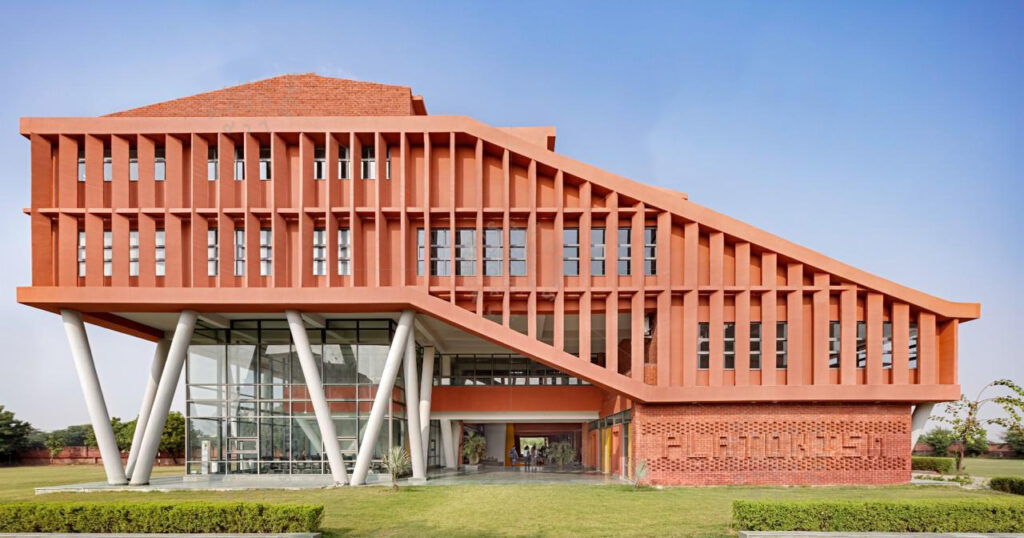
The Diploma in Pharmacy (D. Pharma) is a popular choice for students interested in starting a career in the pharmaceutical industry. To gain admission into a reputed D. Pharma program, candidates often need to clear an entrance exam.
These entrance tests can be conducted at the national, state, or institutional level. Below is an overview of the different types of Diploma in Pharmacy entrance tests:
National-Level Entrance Exams
GPAT (Graduate Pharmacy Aptitude Test)
Overview: Though primarily conducted for M.Pharma admission, some institutions may consider GPAT scores for D.Pharma or B.Pharma lateral entry admissions.
Conducting Body: National Testing Agency (NTA)
Exam Pattern: Multiple-choice questions covering subjects like Pharmaceutical Chemistry, Pharmacology, Pharmaceutics, and Pharmacognosy.
NEET (National Eligibility cum Entrance Test)
Overview: NEET is a widely recognized entrance test for medical and allied health sciences courses. Some colleges and universities consider NEET scores for D. Pharma admission.
Conducting Body: National Testing Agency (NTA)
Exam Pattern: The exam covers Physics, Chemistry, and Biology (Botany & Zoology) with a focus on concepts relevant to health sciences.
State-Level Entrance Exams
State-level entrance tests are conducted by various state governments for admission to D. Pharma programs in state-affiliated colleges. Some of the prominent state-level exams include:
MHT CET (Maharashtra Common Entrance Test)
Overview: MHT CET is conducted for admission to various undergraduate courses in Maharashtra, including D. Pharma.
Conducting Body: State Common Entrance Test Cell, Maharashtra
Exam Pattern: The exam includes questions on Physics, Chemistry, Biology, and Mathematics.
WBJEE (West Bengal Joint Entrance Examination)
Overview: WBJEE is a state-level entrance test for admission to undergraduate courses in West Bengal, including D. Pharma.
Conducting Body: West Bengal Joint Entrance Examinations Board (WBJEEB)
Exam Pattern: The exam covers Physics, Chemistry, and Biology/Mathematics.
KCET (Karnataka Common Entrance Test)
Overview: KCET is conducted for admission to various undergraduate programs in Karnataka, including D. Pharma.
Conducting Body: Karnataka Examinations Authority (KEA)
Exam Pattern: The exam includes questions on Physics, Chemistry, Biology, and Mathematics.
UPSEE (Uttar Pradesh State Entrance Examination)
Overview: UPSEE is conducted for admission to various professional courses in Uttar Pradesh, including D. Pharma.
Conducting Body: Dr. A.P.J. Abdul Kalam Technical University (AKTU), Uttar Pradesh
Exam Pattern: The exam covers Physics, Chemistry, and Biology/Mathematics.
Institutional-Level Entrance Exams
Some universities and colleges conduct their own entrance tests for admission to D. Pharma programs. These exams are typically designed to assess the specific criteria set by the institution.
Jamia Hamdard Entrance Test
Overview: Jamia Hamdard University conducts an entrance test for admission to its D. Pharma program.
Conducting Body: Jamia Hamdard University
Exam Pattern: The exam typically includes questions on Physics, Chemistry, and Biology/Mathematics.
Delhi Institute of Pharmaceutical Sciences and Research (DIPSAR) Entrance Exam
Overview: DIPSAR, affiliated with the University of Delhi, conducts its own entrance test for D. Pharma admissions.
Conducting Body: DIPSAR, University of Delhi
Exam Pattern: The exam covers topics related to pharmaceutical sciences, including basic sciences.
Birla Institute of Technology & Science Admission Test (BITSAT)
Overview: BITSAT is primarily conducted for B. Pharma admissions, but some branches may consider it for D. Pharma as well.
Conducting Body: Birla Institute of Technology & Science (BITS), Pilani
Exam Pattern: The exam includes Physics, Chemistry, Biology, and English Proficiency & Logical Reasoning sections.
Centralized Counseling-Based Admissions
In some states, instead of a separate entrance exam, admissions to D. Pharma programs are conducted through centralized counseling based on merit in the 10+2 examination.
Tamil Nadu D. Pharma Admissions
Overview: Admissions to D. Pharma programs in Tamil Nadu are conducted through centralized counseling based on 10+2 marks.
Conducting Body: Directorate of Medical Education, Tamil Nadu
Admission Criteria: Merit-based on marks obtained in Physics, Chemistry, and Biology/Mathematics in the 10+2 examination.
Syllabus of Entrance exam to D Pharma Admission
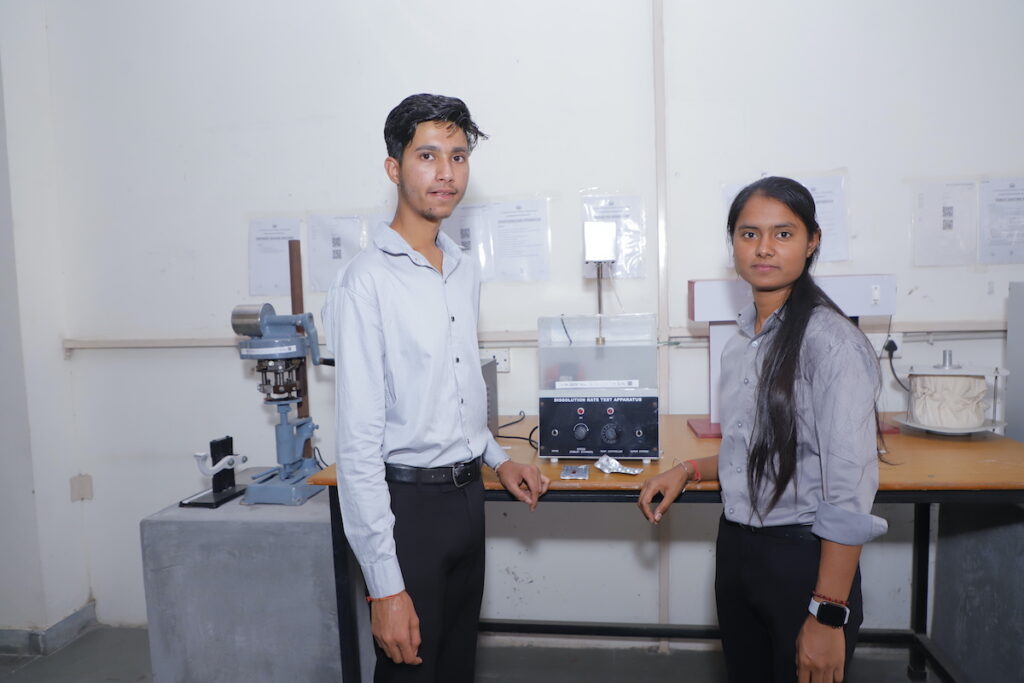
The syllabus for entrance tests to D. Pharma admissions generally covers key subjects from the 10+2 level, particularly focusing on topics related to Physics, Chemistry, Biology, and Mathematics. The syllabus may vary slightly depending on the specific entrance test (national, state, or institutional level), but the core areas remain consistent.
Below is a detailed overview of the typical syllabus for D. Pharma entrance tests:
Physics
Mechanics: Laws of Motion, Force and Torque, Work, Energy, and Power, Rotational Motion, Gravitation, Fluid Mechanics
Thermodynamics: Heat and Temperature, Laws of Thermodynamics, Kinetic Theory of Gases, Thermal Expansion, Specific Heat Capacity, Heat Transfer: Conduction, Convection, and Radiation
Optics: Reflection and Refraction of Light, Mirrors and Lenses, Optical Instruments, Wave Optics: Interference, Diffraction, and Polarization
Electricity and Magnetism: Electric Charges and Fields, Current Electricity, Magnetic Effects of Current, Electromagnetic Induction, Alternating Current, Electromagnetic Waves
Modern Physics: Atomic Models, Photoelectric Effect, Nuclear Physics, Radioactivity, Semiconductors and Electronic Devices
Chemistry
Physical Chemistry: Atomic Structure, Chemical Bonding and Molecular Structure
States of Matter: Gases, Liquids, and Solids, Thermodynamics, Chemical Kinetics, Equilibrium: Chemical and Ionic, Electrochemistry, Surface Chemistry
Inorganic Chemistry: Periodic Table and Periodicity, Chemical Bonding and Molecular Structure, Coordination Compounds, s-block and p-block Elements, d-block and f-block Elements, Environmental Chemistry
Organic Chemistry: Basic Concepts in Organic Chemistry, Hydrocarbons: Alkanes, Alkenes, and Alkynes, Haloalkanes and Haloarenes, Alcohols, Phenols, and Ethers, Aldehydes, Ketones, and Carboxylic Acids, Amines and Diazonium Salts, Biomolecules: Carbohydrates, Proteins, and Nucleic Acids, Polymers, Chemistry in Everyday Life: Drugs, Dyes, and Detergents
Biology
Cell Biology: Cell Structure and Function, Cell Division: Mitosis and Meiosis, Cell Cycle, Biomolecules: Proteins, Lipids, Carbohydrates, Nucleic Acids
Human Physiology: Digestive and Respiratory Systems, Circulatory System, Excretory System, Nervous and Endocrine Systems, Reproductive System, Musculoskeletal System
Plant Biology: Plant Anatomy and Morphology, Photosynthesis and Respiration, Plant Growth and Development, Reproduction in Plants, Plant Nutrition
Genetics and Evolution: Mendelian Genetics, Chromosomal Theory of Inheritance, Molecular Basis of Inheritance, Evolutionary Theories, Human Genetics
Ecology and Environment: Ecosystems and Energy Flow, Biodiversity and Conservation, Environmental Issues: Pollution, Global Warming, Ozone Depletion, Natural Resources: Forest, Water, Soil
Mathematics
Algebra: Sets, Relations, and Functions, Complex Numbers, Quadratic Equations, Matrices and Determinants, Sequences and Series, Permutations and Combinations, Binomial Theorem
Calculus: Limits and Continuity, Differentiation and Its Applications, Integration and Its Applications, Differential Equations
Trigonometry: Trigonometric Functions, Trigonometric Identities, Inverse Trigonometric Functions, Properties of Triangles
Coordinate Geometry: Straight Lines and Pair of Straight Lines, Circles and Conic Sections, Vectors and Three-Dimensional Geometry
Probability and Statistics: Probability Theory, Measures of Central Tendency and Dispersion, Binomial, Poisson, and Normal Distributions
English
English Language and Comprehension: Reading Comprehension, Grammar and Vocabulary, Sentence Correction, Synonyms and Antonyms, Paragraph Completion
Top D Pharma Entrance Exams

Here are some of the top entrance tests for D. Pharma (Diploma in Pharmacy) admissions in India:
MHT CET (Maharashtra Common Entrance Test)
Overview: MHT CET is a state-level entrance test in Maharashtra for admissions to various undergraduate programs, including D. Pharma.
Conducting Body: State Common Entrance Test Cell, Maharashtra
Frequency: Annually
Exam Pattern: The exam includes questions on Physics, Chemistry, and Biology/Mathematics.
Significance: It is one of the most widely recognized entrance exams for D. Pharma in Maharashtra, providing access to several reputed pharmacy colleges.
WBJEE (West Bengal Joint Entrance Examination)
Overview: WBJEE is a state-level entrance test conducted in West Bengal for admission to undergraduate courses in engineering, pharmacy, and architecture, including D. Pharma.
Conducting Body: West Bengal Joint Entrance Examinations Board (WBJEEB)
Frequency: Annually
Exam Pattern: The exam consists of questions from Physics, Chemistry, and Biology/Mathematics.
Significance: WBJEE is the primary exam for students seeking admission to top pharmacy colleges in West Bengal.
KCET (Karnataka Common Entrance Test)
Overview: KCET is a state-level entrance test conducted in Karnataka for admission to various undergraduate programs, including D. Pharma.
Conducting Body: Karnataka Examinations Authority (KEA)
Frequency: Annually
Exam Pattern: The exam includes questions from Physics, Chemistry, Biology, and Mathematics.
Significance: KCET is a key exam for students aspiring to join pharmacy courses in Karnataka.
UPSEE (Uttar Pradesh State Entrance Examination)
Overview: UPSEE, conducted in Uttar Pradesh, offers admissions to various professional courses, including D. Pharma.
Conducting Body: Dr. A.P.J. Abdul Kalam Technical University (AKTU), Uttar Pradesh
Frequency: Annually
Exam Pattern: The exam covers Physics, Chemistry, and Biology/Mathematics.
Significance: UPSEE is a prominent exam for securing admission to D. Pharma programs in Uttar Pradesh.
GUJCET (Gujarat Common Entrance Test)
Overview: GUJCET is a state-level entrance test conducted in Gujarat for admission to various undergraduate courses, including D. Pharma.
Conducting Body: Gujarat Secondary and Higher Secondary Education Board (GSHSEB)
Frequency: Annually
Exam Pattern: The exam includes questions from Physics, Chemistry, and Biology/Mathematics.
Significance: GUJCET is essential for students seeking admission to pharmacy courses in Gujarat.
AP EAMCET (Andhra Pradesh Engineering, Agriculture and Medical Common Entrance Test)
Overview: AP EAMCET is a state-level entrance test conducted in Andhra Pradesh for admission to various undergraduate courses, including D. Pharma.
Conducting Body: Jawaharlal Nehru Technological University (JNTU), Kakinada
Frequency: Annually
Exam Pattern: The exam includes questions from Physics, Chemistry, and Biology/Mathematics.
Significance: AP EAMCET is a crucial exam for students aspiring to join pharmacy courses in Andhra Pradesh.
TS EAMCET (Telangana State Engineering, Agriculture and Medical Common Entrance Test)
Overview: TS EAMCET is a state-level entrance test conducted in Telangana for admission to various undergraduate programs, including D. Pharma.
Conducting Body: Jawaharlal Nehru Technological University (JNTU), Hyderabad
Frequency: Annually
Exam Pattern: The exam includes questions from Physics, Chemistry, and Biology/Mathematics.
Significance: TS EAMCET is the main entrance test for pharmacy course in Telangana.
OJEE (Odisha Joint Entrance Examination)
Overview: OJEE is a state-level entrance test in Odisha for admissions to various undergraduate and postgraduate programs, including D. Pharma.
Conducting Body: Odisha Joint Entrance Examination Board (OJEEB)
Frequency: Annually
Exam Pattern: The exam covers topics in Physics, Chemistry, and Biology/Mathematics.
Significance: OJEE is a key exam for students seeking admission to pharmacy course in Odisha.
Top D Pharma Colleges

Here are some of the top colleges in India that offer a Diploma in Pharmacy course:
Jamia Hamdard, New Delhi
Location: New Delhi
Overview: Known for its esteemed pharmacy course, Jamia Hamdard provides a thorough D.Pharm course with modern facilities and a strong focus on research and development.
Affiliation: Jamia Hamdard University
Accreditation: NAAC ‘A’ Grade
St. Andrews College of Pharmacy (SACP), Gurgaon
Location: Gurgaon, Haryana
Overview: A leading pharmacy institution, SACP offers a comprehensive D.Pharm program featuring state-of-the-art facilities.
Affiliation: Pharmacy Council of India (PCI), Haryana State Board of Technical Education (HSBTE)
Delhi Institute of Pharmaceutical Sciences and Research (DIPSAR), New Delhi
Location: New Delhi
Overview: DIPSAR is highly regarded for its pharmaceutical education and research, offering a D.Pharm course with a strong reputation for quality education.
Affiliation: Delhi Pharmaceutical Sciences and Research University (DPSRU)
Accreditation: PCI (Pharmacy Council of India)
Institute of Chemical Technology (ICT), Mumbai
Location: Mumbai, Maharashtra
Overview: ICT Mumbai is a premier institution for chemical technology and pharmacy, known for its rigorous D.Pharm program and excellent faculty.
Affiliation: Deemed University
Accreditation: NAAC ‘A++’ Grade
Madras Medical College (MMC), Chennai
Location: Chennai, Tamil Nadu
Overview: As one of the oldest medical institutions in India, MMC offers a well-established D.Pharm program with a strong emphasis on clinical pharmacy and healthcare.
Affiliation: The Tamil Nadu Dr. M.G.R. Medical University
Accreditation: PCI
Government College of Pharmacy, Bengaluru
Location: Bengaluru, Karnataka
Overview: This government-run institution is renowned for providing quality pharmacy education. Its D.Pharm program is well-regarded and offers strong industry connections.
Affiliation: Rajiv Gandhi University of Health Sciences (RGUHS)
Accreditation: PCI
JSS College of Pharmacy, Ooty
Location: Ooty, Tamil Nadu
Overview: Part of the JSS Academy of Higher Education & Research, JSS College of Pharmacy is noted for its strong academic curriculum and top-notch infrastructure.
Affiliation: JSS Academy of Higher Education & Research
Accreditation: PCI, AICTE
L.M. College of Pharmacy, Ahmedabad
Location: Ahmedabad, Gujarat
Overview: One of Gujarat’s oldest pharmacy colleges, L.M. College offers a well-rounded D.Pharm program with a focus on practical learning.
Affiliation: Gujarat Technological University (GTU)
Accreditation: PCI
Al-Ameen College of Pharmacy, Bengaluru
Location: Bengaluru, Karnataka
Overview: A prominent private pharmacy college in India, Al-Ameen College offers a strong D.Pharm program with extensive industry exposure and practical training.
Affiliation: Rajiv Gandhi University of Health Sciences (RGUHS)
Accreditation: PCI, AICTE
Fees Structure of D Pharma Colleges
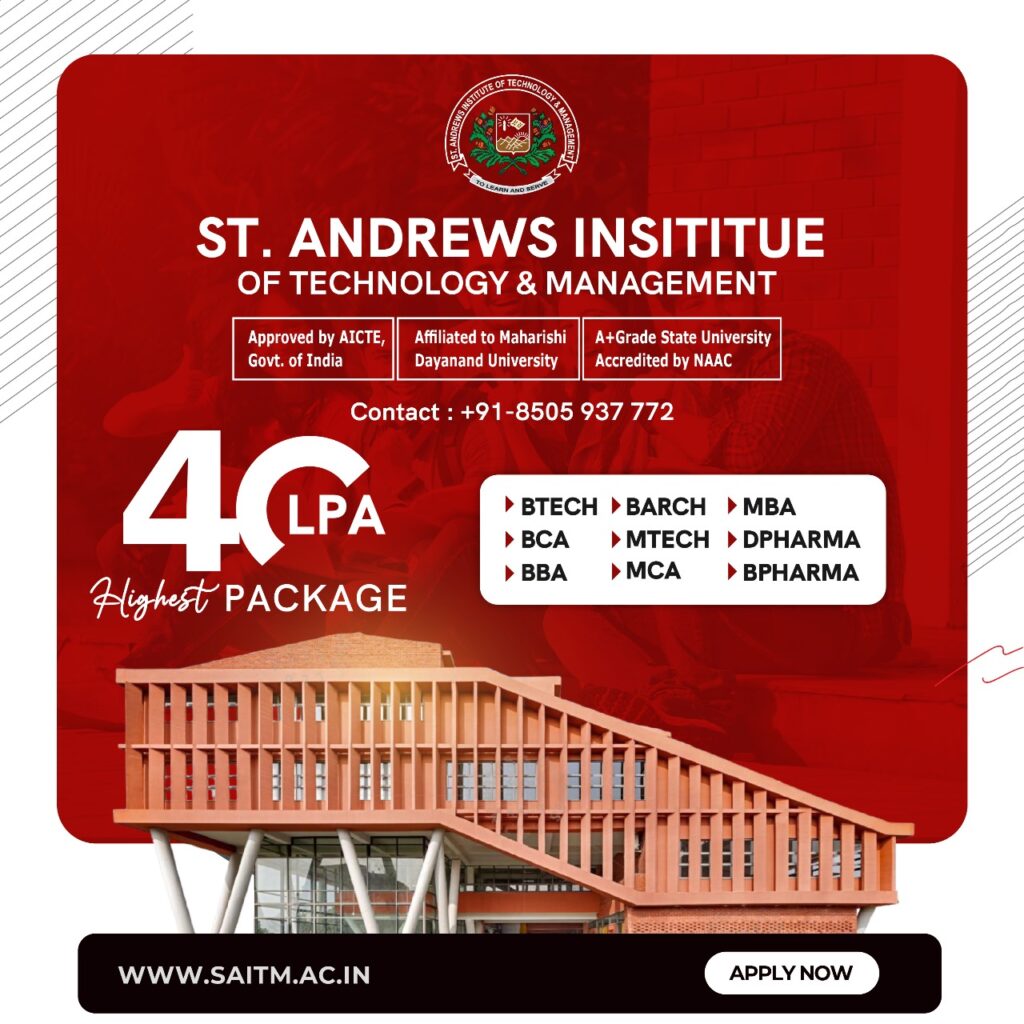
The fee structure for a D.Pharm (Diploma in Pharmacy) course can vary significantly depending on the type of institution (private or government), its location, and the facilities provided.
Here’s a general overview:
Government Colleges:
Annual Fees: ₹5,000 – ₹25,000
Total Course Fees: ₹10,000 – ₹50,000 (for 2 years)
Private Colleges:
Annual Fees: ₹50,000 – ₹1,50,000
Total Course Fees: ₹1,00,000 – ₹3,00,000 (for 2 years)
Additional Costs:
Examination Fees: Often around ₹1,000 – ₹5,000 per year.
Laboratory Fees: ₹5,000 – ₹15,000 per year (if applicable).
Books and Study Materials: ₹5,000 – ₹10,000 per year.
Hostel Fees (if applicable): ₹30,000 – ₹1,00,000 per year.
FAQs
Is an entrance exam required for D Pharma admission?
In most cases, D.Pharm admissions are based on marks obtained in the 10+2 exams. However, some colleges or states may require a D Pharma Entrance Exam or accept scores from state-level entrance tests.
What are the commonly accepted entrance exams for D Pharma course admissions?
Commonly accepted entrance exams include state-level exams such as MHT-CET (Maharashtra), GUJCET (Gujarat), or AP EAMCET (Andhra Pradesh). Some institutions may also have their own entrance tests.
What subjects are typically covered in the D.Pharm entrance test?
Entrance exams usually cover subjects like Physics, Chemistry, and Biology/Mathematics based on the 10+2 curriculum.
How can I prepare for the D.Pharm entrance test?
Preparation involves reviewing your 10+2 subjects, focusing on Physics, Chemistry, and Biology/Mathematics. You can use textbooks, past exam papers, and online resources to help with your preparation.
What is the exam pattern for D.Pharm entrance test?
The exam pattern typically includes multiple-choice questions (MCQs) in subjects like Physics, Chemistry, and Biology/Mathematics. The duration and number of questions may vary by exam.
How do I apply for the D.Pharm entrance test?
Applications can typically be made online through the official website of the exam conducting body or the college. You need to fill out the application form, pay the required fee, and submit necessary documents.
What is the eligibility criteria for appearing in the D.Pharm entrance test?
Candidates typically need to have completed 10+2 with Physics, Chemistry, and Biology/Mathematics, meeting the minimum percentage required by the institution or D Pharma Entrance Exam authority.
How is the selection process carried out for D.Pharm programs?
The selection process may be merit-based, considering your 10+2 marks or entrance exam scores for admission. Some institutions may also include a counseling process based on the exam results.
Do we have future after D pharma admission in community health centres & pharmaceutical companies?
Yes, after completing D.Pharm, there are excellent opportunities in community health centers and pharmaceutical companies. By clearing the D Pharma Entrance Exam, you can pursue roles such as a pharmacist, pharmacy assistant, or work in drug distribution, patient care, and pharmaceutical sales, making a valuable contribution to healthcare.




